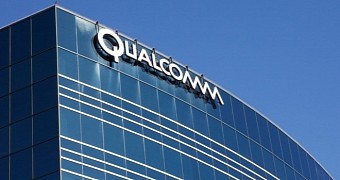The European Commission today announced a $1.23 billion (997 million Euro) fine for Qualcomm, after the company paid Apple to only use its chipsets in the latest generations iPhones.
The fine, which according to EU competition rules could reach 10 percent of a company’s revenues in the previous year, represents only 4.9 percent of Qualcomm’s 2017 turnover.
“Qualcomm paid billions of U.S. dollars to a key customer, Apple, so that it would not buy from rivals. These payments were not just reductions in price – they were made on the condition that Apple would exclusively use Qualcomm’s baseband chipsets in all its iPhones and iPads,” European Competition Commissioner Margrethe Vestager said today.
The European Commission has already confirmed that Apple does not risk any sort of fine or penalty following the ruling against Qualcomm.
Qualcomm also at war against Apple
The chipmaker has its very own legal war against Apple, after the Cupertino-based iPhone maker filed a lawsuit in January 2017 due what it claimed to be unfair licensing terms, asking $1 billion in damages and requesting a smaller fee for using Qualcomm’s chipsets in its own devices.
On the other hand, Qualcomm filed its own lawsuit against Apple and even asked for a ban on the iPhone in the United States, claiming that it violates several of the patents it owns.
Since then, the two companies have accused each other of patent infringement on several occasions, with Qualcomm itself being taken to court for other illegal practices by a number of Apple suppliers.
Hon Hai Precision Industry (parent company of Foxconn), Wistron, Compal Electronics, and Pegatron, all of them Apple suppliers, said Qualcomm was trying to charge them more than the agreed licensing fees.
Qualcomm has faced legal trouble in other big markets as well, including in China where it was fined $1 billion due to antitrust issues. In South Korea, it was fined $850 million for violating competition rules and creating a monopoly on the local market.

 14 DAY TRIAL //
14 DAY TRIAL //